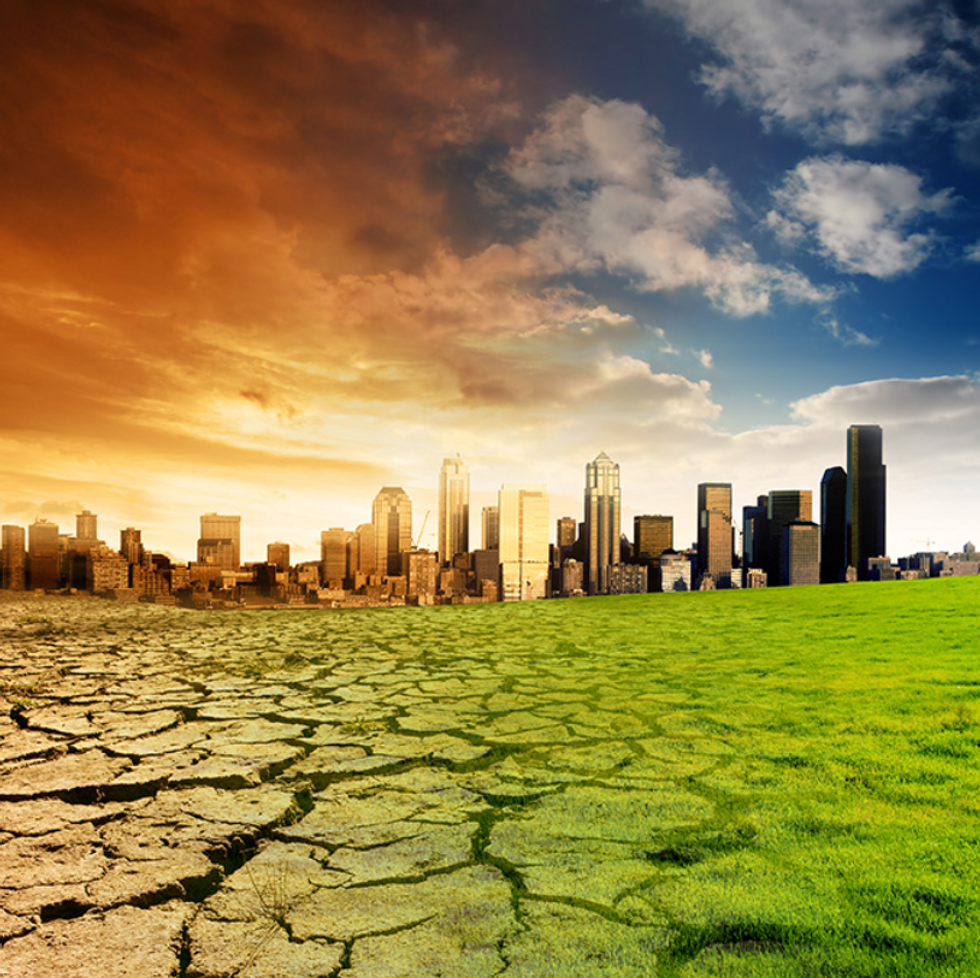I am writing this in part as a response to the President of the United State's recent executive order that aims to "promote energy independence and economic growth" which, although it did not withdraw the U.S. from the Paris Climate Agreement, did, in fact, undo a lot of President Obama's climate policies.
Dear Climate Change Deniers,
I am not here to blame you. I am not here to accuse you of anything. I understand that the world we are living in is a confusing one. Whether or not you support Trump (this is not what I want to talk about), this is a complicated time in our history, one in which we are seeing the lines of fact and farce blurred and interwoven to the point that it is hard to tell which is which.
Secondly, let me just put this out there: I am definitely not here to talk about the polar bears; although they are cute and ferocious and they are facing some SERIOUS issues right now, I know you’re probably really sick of hearing about them. Besides, most of us haven’t seen a polar bear outside of the zoo and so if that is the only example of the threat facing this planet that you know of, you probably aren’t too motivated to do anything about it. Antarctica is thousands of miles away and let’s face it, we really only care what’s going to happen to us.
So here’s what I’m going to do.
First, I’m going to break down the common arguments against climate change with real evidence (read: absolutely not alternative facts). Next, I’m going to show you how this affects YOU, and how it will change your life… not your children's’ lives, not your grandchildren's’ lives. Your life. Lastly, I’ll explain what exactly you can be doing to help.
Let’s do this.
First objection:
“There is little to no evidence of climate change.”
I think a really important thing to note here would be what exactly evidence of climate change is based on.
It is not speculation. It isn’t guessing. It is based on none other than the tried and true, handy dandy, trusty scientific method!
Basically, if you aren’t totally familiar with it, it begins with a hypothesis which is science for an educated guess.
After that, several trials of the same experiment are conducted (to ensure results are as accurate as possible) and when these results are collected and analyzed, a conclusion is formed.
However, (and this is the REALLY important part) it is essential that the hypothesis is not only provable but even more importantly, it must be disprovable.
And if it happens that results contradict the hypothesis, the hypothesis does not change. It is simply disproved.
Now that we’ve been through that, there are several places you can go to view the evidence for climate change. The first is the NASA GISS direct surface temperature analysis. The second is CRU direct surface temperature analysis.
If data bores you (I totally get it), maybe you’ll consider this… that you can actually see the evidence for climate change in the altered patterns of animal behavior.
Among other changes, many fish species are recorded to be moving further north in search of cooler waters, some plant species are blooming earlier than previously recorded, and some mammals are coming out of hibernation sooner.
Second objection:
“It was cold today in (insert town name here).”
Guys, I’m sorry, but that literally means nothing.
The definition of climate change is not what temperature it was today or yesterday. Just because it is cold does not mean the Earth’s overall climate is not changing.
Climate change, according to Dictionary.com is a change “due to a change in the average atmospheric temperatures.” Keyword: average.
Third objection:
“There’s no consensus.”
Actually… 97% of climate scientists (read: the people who really matter in this “debate”) agree that climate change is happening. There is definitely a consensus on the matter. A pretty clear one, in fact.
Okay, but how does this affect you?
According to a quote in an article published by Science Friday, thermal sciences professor John Abraham says that when he talks to people about climate change, he uses examples they can relate to. Things like, “wildfires in Tennessee that are affecting Americans’ lives this winter… the changes to habitat for hunters, fishermen, and farmers.”
There are some very real, very serious consequences, not least of which is the disruption to food production that climate change may cause as a result of flooding, droughts, and the endangerment of honey bees.
Ultimately, what it comes down to is that we are all responsible for what happens. So, why would you risk it?
If I have persuaded you, or even if I haven’t, I would urge you to open up the conversation to others. Sure, there are other very pressing social, political and economic issues at hand, but do not let that be an excuse to ignore this one. It is just as important.
Ask questions. Do your own research. Read. Watch. Listen. Look into how to eat sustainably, how to reduce your water and energy usage.
And, for the love of God, people, recycle! It’s not as hard as it seems.



 Photo by
Photo by  Photo by
Photo by  Photo by
Photo by 



















